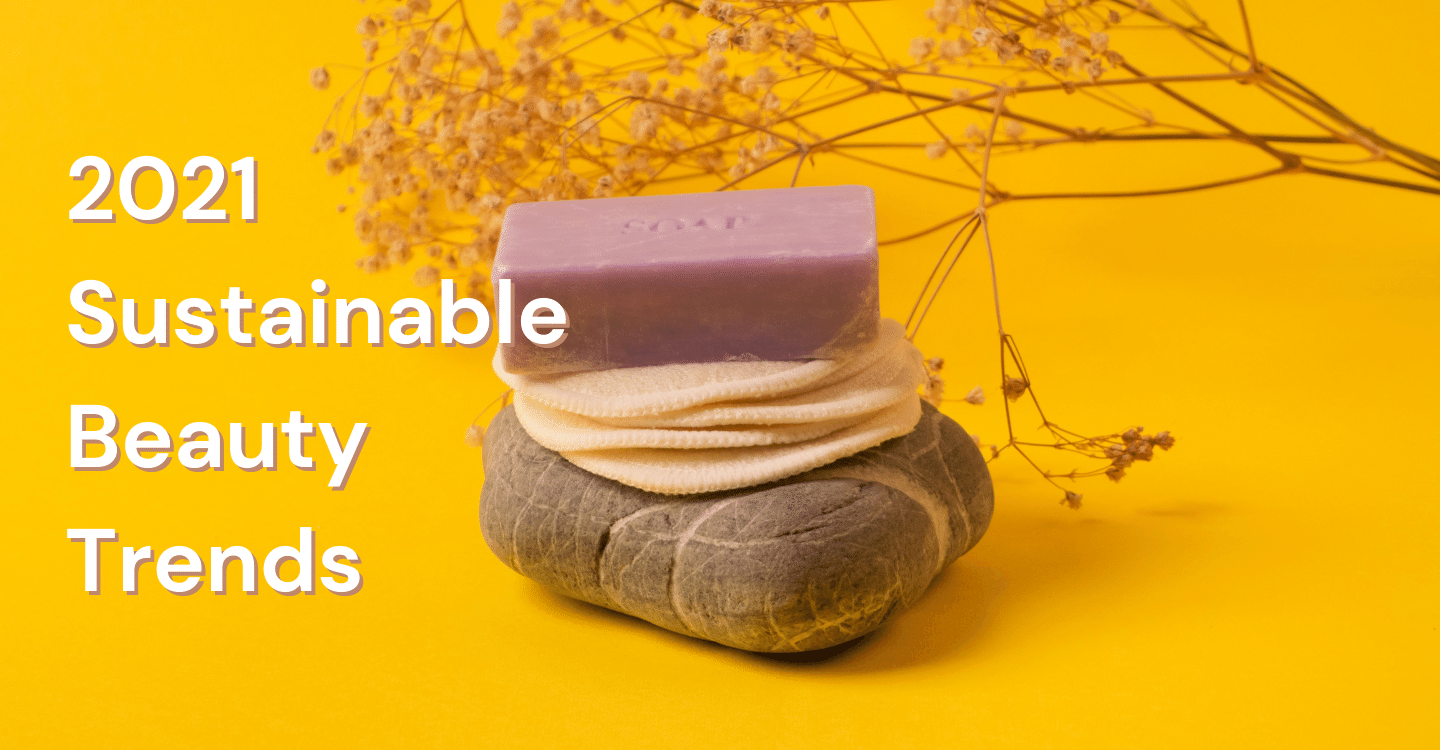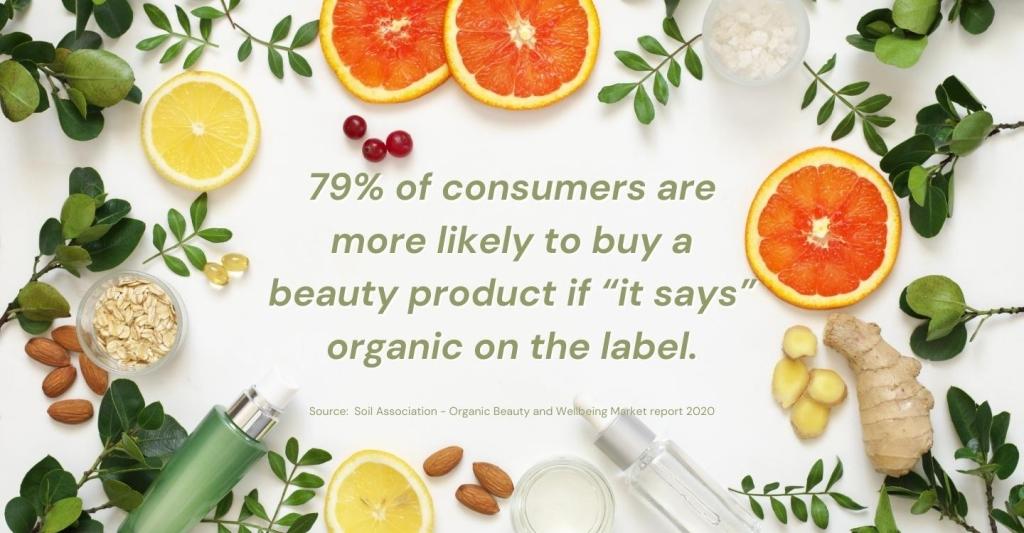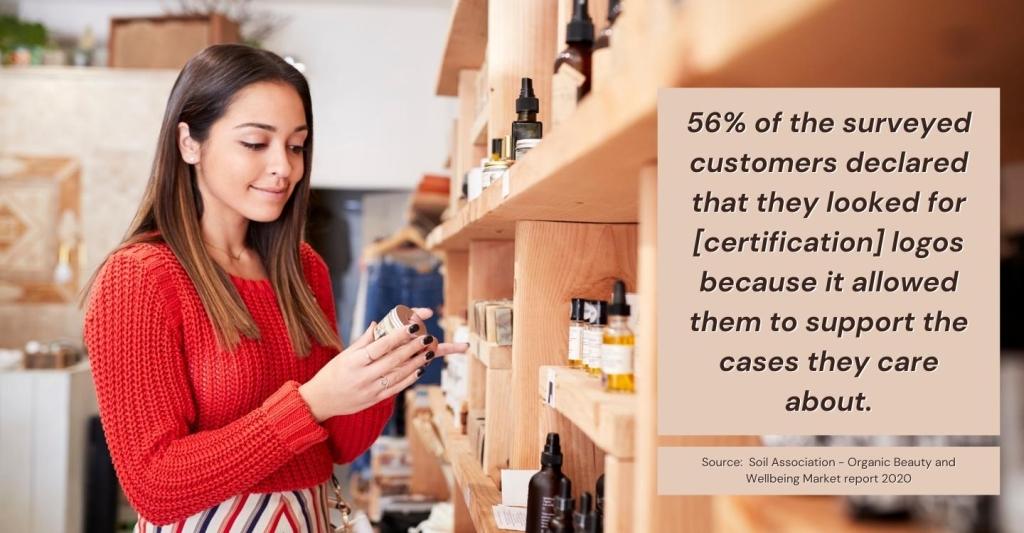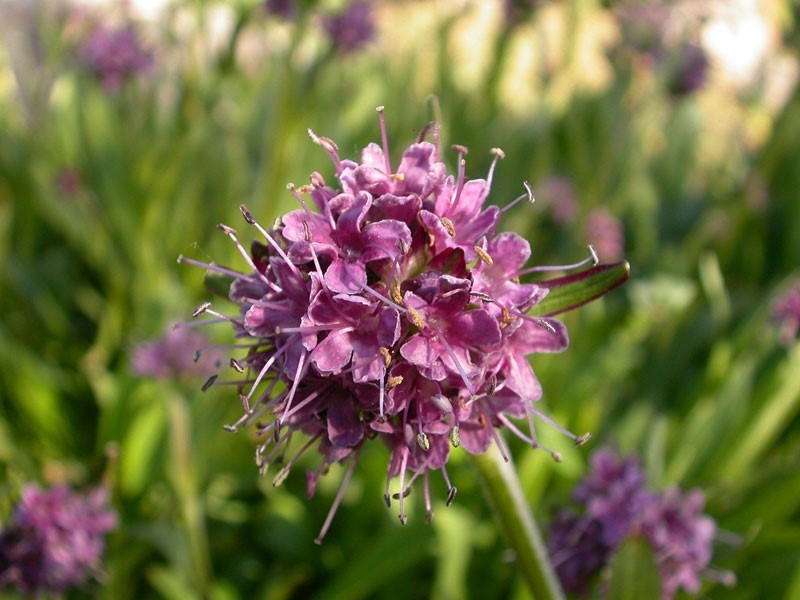We’ve asked our consultants Nicolás Caso and Jolanda van Hal to share the main sustainable beauty trends of 2021 and why sustainably sourced natural ingredients for cosmetics are more important than ever. In this article, the two consultants share the main 2021 trends, how sustainability certifications are becoming essential to succeed in international markets, and how to meet the growing demands of international buyers.
2021 Sustainable Beauty Trends: Why sustainably sourced natural ingredients for cosmetics are more important than ever
2021 has also been an important year in terms of sustainability in the cosmetic sector. Sustainable sourcing of natural ingredients for cosmetics has gained momentum at several levels. For example, The Body Shop announced to certify all of its product formulations with The Vegan Society by 2023 saying that “vegan beauty is a critical next step in our sustainability and environmental endeavors”. Also this year, BASF Care Creations introduced sustainable substitutes for traditional cosmetic ingredients such as volatile silicones, stytrene or other synthetic polymers, and L’Oréal launched a model for fragrance ingredients that provides information on ingredients used across their entire portfolio to increase ingredient transparency., With small indie brands like Essential Parfums and Kadalys taking charge, the trend for naturality, which is already very strong in skin care, is spreading towards other segments like perfume and make-up.
We have also identified other recent developments that may impact the sector:
- Full circularity for cosmetic products
- Understanding the social and environmental impacts of cosmetic products: e.g. the Development of a Global Environmental Impact System by the big five
- Sustainability communications to consumers
As consumers keep calling for more transparency on ingredient origins, certifications for sustainably sourced ingredients for cosmetics are becoming more important every day. COSMOS and Natrue keep gaining territory among a long list of eco labels or certifications for cosmetics, while niche labels like The Vegan Trademark are gaining momentum.
Why are sustainability certifications so important?
Cosmetics Europe echoes that the cosmetics industry places a strong emphasis on improving environmental sustainability of its products and activities. The association adds that cosmetic companies actively support a wide range of voluntary and self-regulatory initiatives to support this goal. One of these standards are organic certifications, which are becoming more important to end consumers every day.
2020s Organic Beauty and Wellbeing Market report by Soil Association provided key insights on why certification for organic sourcing has become so important in this sector. Among end-consumers there is a strong association between sustainability and organic certificates. According to Soil Association’s research, people associate the word “Sustainable” most strongly with organic. What’s more, 79% of consumers are more likely to buy a beauty product if “it says” organic on the label. As a matter of fact, 56% of the surveyed customers declared that they looked for [certification] logos because it allowed them to support the cases they care about.
European market requirements for natural ingredients for cosmetics
As an exporter, you can also use labels like organic certification to show you can meet buyer requirements on traceability, transparency, and sustainable sourcing. This is becoming increasingly important in the cosmetics industry. Buyers expect their suppliers to provide greater transparency to the traceability and sustainability of their ingredients, especially for flagship or strategic ingredients. In addition to organic certification, other voluntary standards that support this trend include the Union for Ethical BioTrade (UEBT), which certifies ingredients sourced with respect to biodiversity and the environment. Ethical sourcing of ingredients will likely become more important in cosmetics as well.
At the same time, exporters of natural ingredients need to meet international regulations regarding biodiversity that have become part of European legislation: CITES and Nagoya Protocol. Such biodiversity regulations are becoming increasingly important in Europe, buyers will expect their suppliers to be able to meet these requirements.
CITES (the Convention on International Trade in Endangered Species of Wild Fauna and Flora) is an international treaty. It aims to ensure that international trade in wild animals and plants does not threaten their survival. Chek our work on Jatamansi in Nepal for more information.
You also need to comply with legislation on Access and Benefit-Sharing (ABS), in case your country has ratified or signed the Nagoya Protocol.
A growing demand for certifications – how to comply with all requirements?
 With an increasing demand for certifications, the need for a centralised tool that helps companies navigate all requirements has become key. This is why ProFound developed the NI-CheckApp. The NI-CheckApp is the one-stop compliance tool for the natural ingredients value chain. It is the tool for documentation, compliance, guidance, and sustainability. Designed for both suppliers and buyers, this tool makes traceability and sustainability of production chains easier and more affordable. It saves up to 30% of annual inspection time and reduces the necessary documentation and administration for combined certification of organic and FairWild by over 50%.
With an increasing demand for certifications, the need for a centralised tool that helps companies navigate all requirements has become key. This is why ProFound developed the NI-CheckApp. The NI-CheckApp is the one-stop compliance tool for the natural ingredients value chain. It is the tool for documentation, compliance, guidance, and sustainability. Designed for both suppliers and buyers, this tool makes traceability and sustainability of production chains easier and more affordable. It saves up to 30% of annual inspection time and reduces the necessary documentation and administration for combined certification of organic and FairWild by over 50%.
Would you like to know more about the European buyer requirements for natural ingredients for cosmetics? Or how ProFound’s CheckApp can help your company save time and costs when complying with international buyer requirements? Get in touch with us to discuss how our compliance services can help your company.
Interested in sustainable beauty? – Keep reading:




